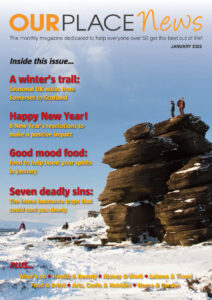Few people would consider retiring to the remote inferno of the Kalahari, most prefer a cosy McCarthy & Stone apartment within walking distance of Waitrose. But 78 year-old Professor Anne Rasa is redefining the Real Marigold Hotel concept.
 Approaching retirement, I was thinking of downsizing and slowing down, until I visited 78 year old Professor Anne Rasa’s Meerkat Sanctuary, baking in the semi-desert of South Africa’s Kalahari. No down-sizing for her, as retirement approached she upsized, purchasing 3,500 acres of the parched Kalahari.
Approaching retirement, I was thinking of downsizing and slowing down, until I visited 78 year old Professor Anne Rasa’s Meerkat Sanctuary, baking in the semi-desert of South Africa’s Kalahari. No down-sizing for her, as retirement approached she upsized, purchasing 3,500 acres of the parched Kalahari.
I called in for a couple of hours on my way to a stay in the Kgalagadi, the world’s largest nature park. Appropriately in the native tongue of the indigenous Khomani San, Kgalagadi means “Place of Thirst.”
Breakfasting on strong coffee and her first fag of the day, Prof Anne had been up most of the night helping to deliver four Meerkat kits.
Retiring from university life, for her had been a new beginning, not just an ending. Her pioneering academic research on the Dwarf Mongoose species, she discovered that they live in strictly matriarchal societies with child care and sentry duty delegated, places her up there with Dian Fossey and Jane Goodall. Her academic rigour is unforgiving: “If you remember your Latin …” is her favourite opening gambit.
Few lasses born in the Rhonda valley in the 1940s – and initially known as Blodwyn – end up living beneath a Welsh Flag just a few miles short of the Botswana border. It is a mere two-hour drive to the nearest supermarket: neither a Co-Op nor Bingo Hall within walking distance.
Plan A had been to bring order to this vast plot of overgrazed scrubland and eventually open it as a private game reserve. Then the plight of meerkats, bought as pets and abandoned, had appalled her.
She takes in former pets left on the Veldt or injured meerkats. Often, they have been involved in road accidents. Once they’ve recovered and formed a colony, they leave, “Frequently across the border to Botswana,” she comments.
Forget any notions that meerkats are cuddly pussycats who cutely stand on their hind legs. They fight for status in their hierarchy. Upstart rivals have their legs broken and starve to death. Yet if a Meerkat is injured or killed on a road their colleagues will loyally head off to help: often with further tragic circumstances.
Prof Anne’s arms are scarred from Meerkat bites. “They won’t let go unless you put them under a running tap.” And running taps are rare in the Kalahari.
Meerkats are tougher than you would imagine. Scorpions? No problem for Meerkats. Spin the scorpion round, snap off the sting, then enjoy a tasty hors d’oeuvre.
Yet her housemates, who sleep on her bed and wake her by tugging at her lips, all have names that reflect their personality. There is Big Douglas, Bubble, Squeak and Footsitter. Then there’s Zorro, ruthless in his pursuit of power.
I was fortunate to meet Prof Anne. Most visitors are introduced to the meerkats by her staff or a post-grad undertaking doctoral research.
Prof Anne may not be as sprightly as she was, delegating the evening stroll through the dunes with the meerkats, but her mind is as agile as ever. She’s started an online petition to ban the keeping of Meerkats as pets in South Africa.
Just as we are about to leave she says, “I’ve had an idea for another book-Meerkat Memories.” Indefatigable and inspirational.
Kalahari Trails Meerkat Sanctuary
Fly from most of South Africa’s big cities to Upington. Then it is a 2-hour drive north to Kalahari Trails Meerkat Sanctuary. You can hire a car at the airport or if you plan to head on into the Kgalagadi Transfrontier Park, and maybe across the border into Botswana, you could organise your own personal safari with a company such as Richters Safaris.
A dune walk with an ecologist at the Kalahari Meerkat Trails sanctuary- and usually some meerkats for company – begins at £9.
A range of accommodation is also available. There’s a Guest House with self-catering facilities and a dune-side camp.
To find out more, you can email at:
[email protected] or call 0027 (0) 54 511 0900 (landline) or 0027 (0) 72 277 2377 (mobile).
(Article source: 50 Connect)

